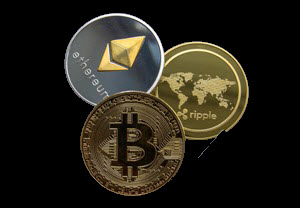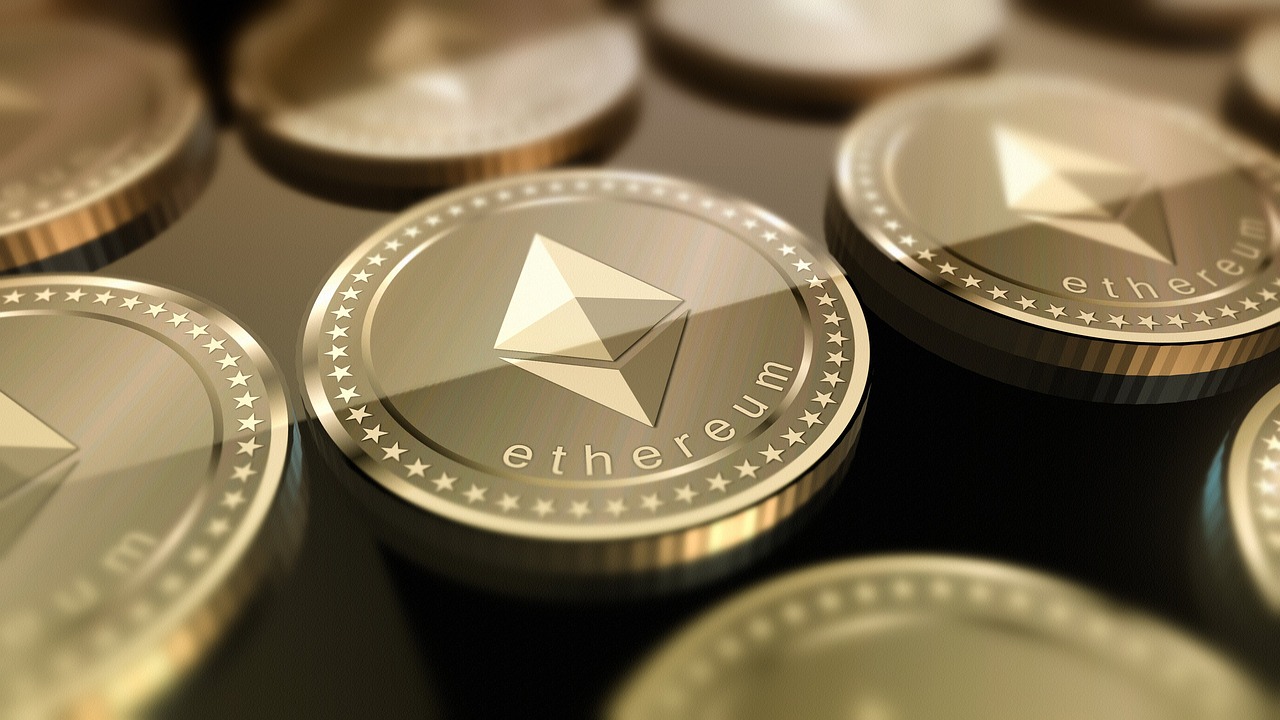
The Ethereum Platform
What is Ethereum?
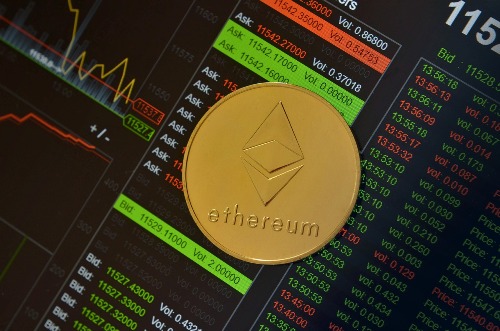
Although Bitcoin gets all the publicity, the Ethereum blockchain may well be the most important development so far in the cryptocurrency universe. Why is this?
The Ethereum is designed to support smart contracts.
These are written in such a way that if the contract conditions are met, the transaction is executed. The way it should be in the real world, but frequently isn't. There's no fudging, no disagreement over what different terms mean and, just like Bitcoin, no central arbiter of trust required. Trust is built into the technology. The contract can't be changed once it's written.
Decentralized Applications (dApps) are applications that don't run on a central server. Instead, they run on a blockchain and, as the blockchain is decentralized, so are the dApps.
Solidity is the programming language used to build dApps on the Ethereum blockchain. It's not unlike JavaScript and is available freely to everyone. So, for a small transaction fee, any programmer who has learnt Solidity can create an Ethereum smart contract.
Is Ethereum a Cryptocurrency?
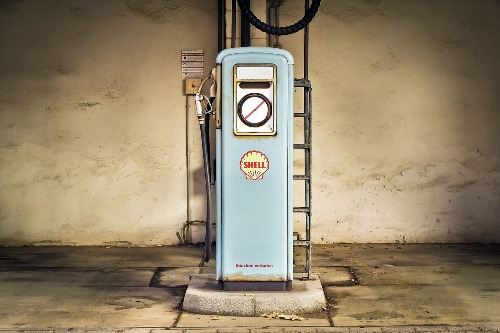
No it's not. But it does have a cryptocurrency associated with it.
Ethereum is a platform and its cryptocurrency is Ether (ETH). Just like Bitcoin (BTC), Ether can be exchanged for other cryptos or fiat currency such as the US dollar (USD).
You have to pay a transaction fee to do anything on the Ethereum blockchain and the transaction is normally paid for with ETH. Not only that, but of course the smart contract transactions themselves are settled with a payment of ETH from one contract party to the other. Within the Ethereum world, this is referred to as "gas". In many people's opinion, this is an unfortunate choice for a couple of reasons. One, car fuel is referred to as gas (gasoline) only in North America. The rest of the world uses petrol (petroleum). And two, the terms are disappearing as everyone switches to electric vehicles.
Still, it is what it is.
As a simple example, Jake could engage Sally to do a landscaping job for his house at an agreed price of 6 ETH. They would write a smart contract on the Ethereum platform that simply says Jake will pay Sally 6 ETH when Sally completes the landscaping job. As soon as both agree the the job has been done, 6 ETH is automatically transferred from Jake's account to Sally's.
How Do You Get Hold of Some Ether?
Mining for Ether
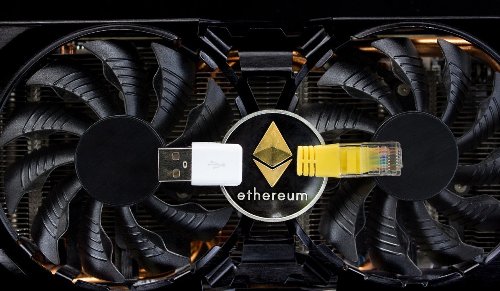
Unlike Bitcoin, there is no limit on how much Ether can exist so theoretically, you can continue mining it forever.
Ether is mined currently by the same Proof of Work puzzle solving as Bitcoin (see Mining the Blockchain) but is moving towards Proof of Stake, which requires considerably less computer power and so is more environmentally friendly. It's predicted that Proof of Stake will completely replace Proof of Work over the next couple of years.
At a basic level, Ethereum mining is simply the method by which new transactions get added to the Ethereum blockchain. This is done by Ethereum miners using their computers running specialized software.
You can watch a video explaining the process here:
An Ethereum miner finds a block roughly every 15 seconds. This timing is automatically maintained by the algorithm adjusting its level of difficulty.
Services such as CoinDesk: How to Mine Ethereum provide advice on the suitable hardware that you need to mine Ether, how to install the official mining software, Ethminer and a selection of mining pools that you can join to add your computing power to others.
Trading for Ether
Of course, the easiest and quickest way to acquire some Ether is to trade another currency for it, either a cryptocurrency such as bitcoin or a fiat currency such as Euros or US Dollars.
You simply join a trading platform that's been around for a while and has a decent reputation, such as
but do your own due diligence.
You can then trade your fiat currency for Ether (or your other cryptocurrency of choice). Once you have some crypto, you can use it to trade for others. As all cryptos are volatile, you can gain or lose on these trades.
Storing Your Ether
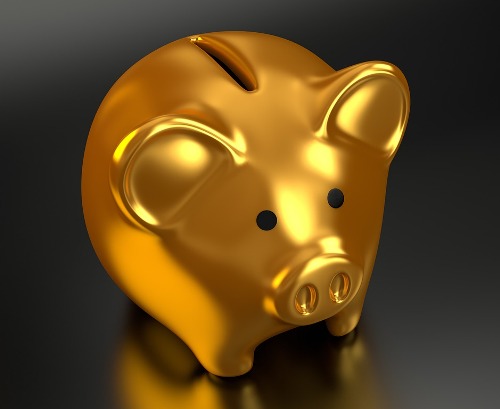
It's very important to store your ETH safely and securely. There are plenty of tech-savvy thieves around just looking for insecurely stored cryptocurrency. Because of the decentralized nature of the blockchain (and so no central entity to blame) if you lose your holding, that's it. It's gone.
Your holdings are kept in a crypto-currency wallet. This can be thought of as similar to an online bank account. Just as you have credentials to access your bank account online and can then transfer money out, you have private keys to access your crypto-currency wallet. And, just like your bank account, anyone with the correct keys can access your wallet.
The keys are long and complex and cannot be guessed, But if they are kept online, the entity keeping them could possibly be hacked. Which leads us to the question "How do I keep my keys secure?"
Perhaps surprisingly, the most secure method is also the most low-tech. It's referred to as a paper wallet.
A paper wallet is just what it sounds like. You write your personal keys down on a piece of paper, copy it, laminate them and keep them in two secure locations.
Because your keys aren't stored on the internet, your wallet can't be hacked.
However, they are inconvenient as before you can access your holdings, you have to retrieve your wallet from its secure location. And, of course, not keeping it in a secure location defeats the purpose. It's like having a complex password that you can't remember, so you write it on a post-it note and stick it to the side of your monitor. In fact, that's the most common way for systems to be hacked.
Paper wallets are only useful if you are not trading your cryptocurrency. You are just holding for the long term. In cryptocurrency jargon, you are a HODLER.
Equally secure but more convenient is the hardware wallet. This is a piece of hardware that securely stores your keys and is connected to the internet only when you want to trade.
Hardware wallets can be purchased from a number of suppliers, including
As always, do your own due diligence before selecting a supplier.
You can also keep your wallet on your computer desktop or with your trading platform but this is not recommended as you could lose everything to a hack.
Could Social Media Platforms Move to the Blockchain?
The unprecedented popularity and influence of social media platforms such as Facebook and Twitter have placed enormous (and unplanned) power into the hands of a few unelected billionaires.

Facebook makes its billions from advertising but treats its advertisers with contempt.
You can have a successful ad running on Facebook and then have the ad disapproved for no good reason. Their algorithm has decided that your ad has failed one of its rules, even though it clearly (at least to any reasonable human being) hasn't. You have one chance to appeal, but 99% of the time, the attitude seems to be a belief that if the algorithm says so, it must be so. No logical reason is given for the ban.
If you get a couple of ads rejected, then your entire Facebook account is banned. You can never advertise with Facebook again. Not even to boost a post on your Facebook page!
The internet is awash with ex Facebook advertisers complaining about their poor treatment. There are even people on gig platforms like Fiverr who make a living by claiming to be able to get your banned FB account reinstated (they can't).
So there's a huge opening for a Facebook like platform running on a blockchain, so that it's not subject to censorship by an all-powerful central authority.
Twitter is insanely popular with an incredible and immediate reach. It's become the propaganda weapon of choice of politicians all over the world. They can instantly reach their support base and at the same time attempt to persuade their detractors.
It was used extensively (and with extensive use of CAPITALIZATION!! and exclamation marks) by the US President Donald Trump.
Until his account was banned by Twitter.
Now you may be for or against Donald Trump but irrespective, you should be concerned that an unelected, unrepresentative billionaire has the power to gag the president of the United States. Even Trump's detractors were interested in what the president had to say, as they saw it as condemning himself out of his own mouth.
As Voltaire said "I disapprove of what you say, but I will defend to the death your right to say it."
Again, a Twitter equivalent running on a blockchain would not be subject to central censorship.
The internet itself was originally intended to be free of censorship, which is the reason it's banned or controlled in some countries.
Decentralized Social Media
It's estimated there will be around 5 billion users of social media by 2025.
If we extrapolate the current setup. this would reflect a frightening consolidation of power in the hands of a few individuals.
The only hope of avoiding this lies in blockchain technology.
Fortunately, this has already started. Though it's in its early stages and will evolve in ways we can't see right now, here are some of the early players:
Ethereum Platform Summary
Ethereum may be the blockchain platform that revolutionizes everything by the existence of smart contracts that have the potential to reach into every part of our lives.
And the accessibility of a readily learnt programming language that could result in new, uncensored social media platforms.
